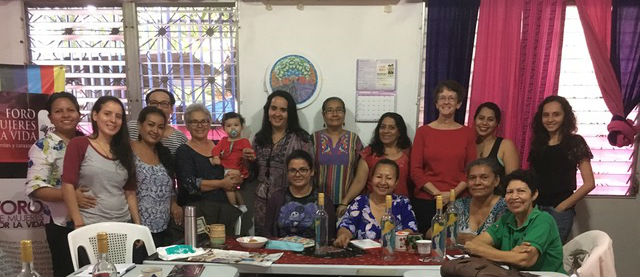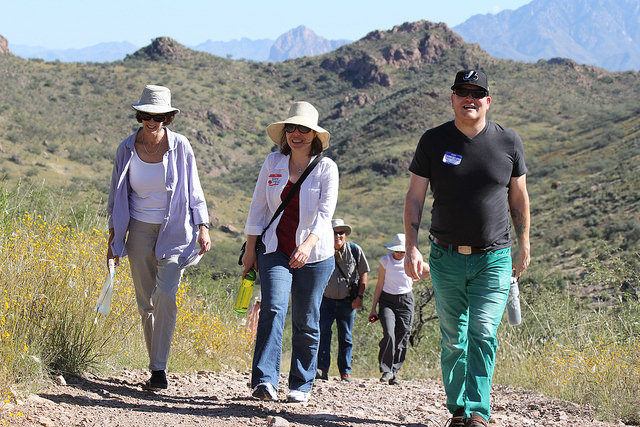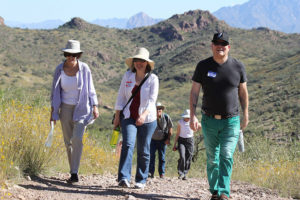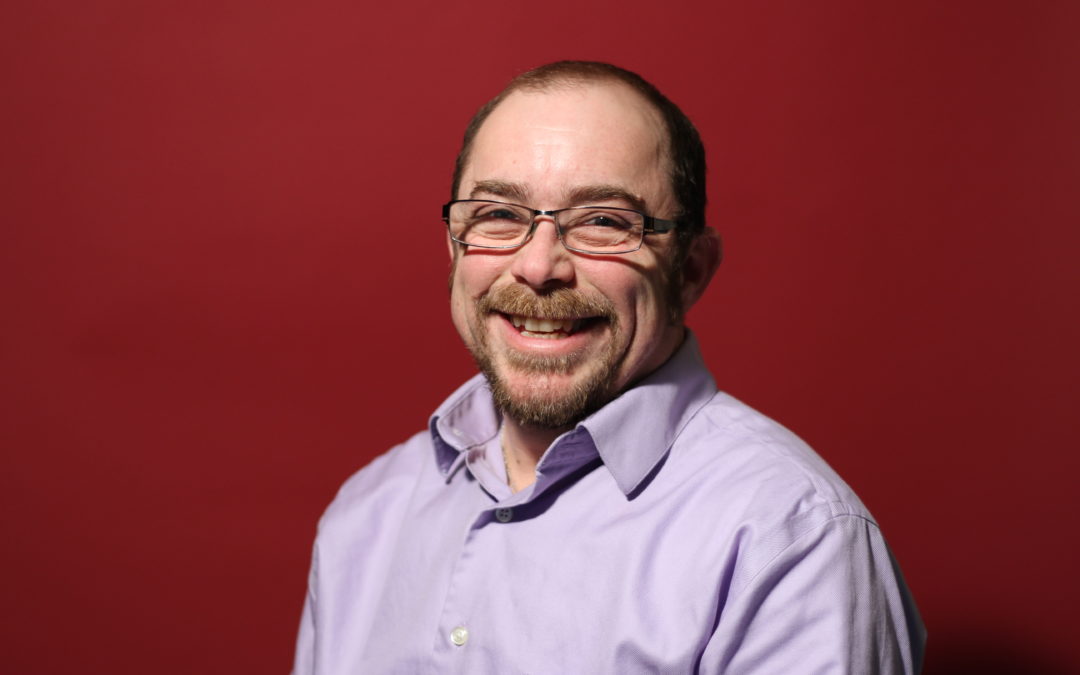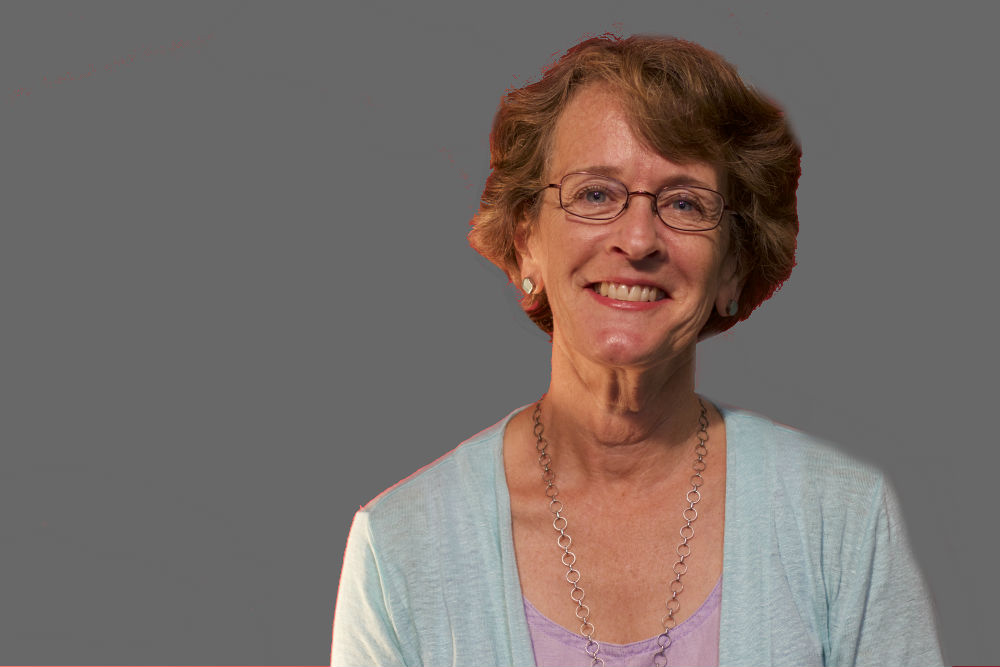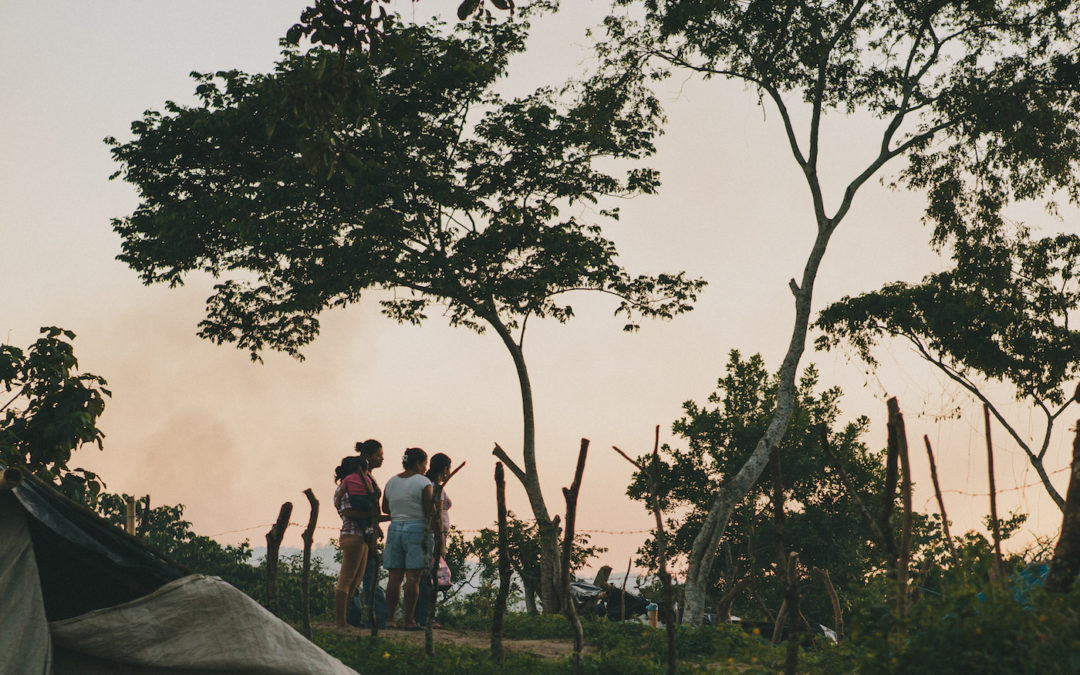
Defend the Human Rights of Migrants: Root Causes
At a time of deepening crisis for immigrants and asylum seekers, the UU College of Social Justice has organized an immersion experience with Cristosal specifically for religious professionals and lay leaders. This journey will help you deepen your understanding of the migration crisis and will support your justice ministry with theological reflection among colleagues. Our Root Causes Journey to El Salvador will be January 20-27, 2020, with UUSC partner Cristosal and lead by UUSC’s Director of Activism and Justice Education Kathleen McTigue. This journey offers powerful experiential learning that will help you support your congregations in acting for immigration justice. Generous scholarship aid is available for religious professionals and seminary students. The deadline to register is November 8, 2019. Read more to hear first hand from Cristosal Global School alumna, Kendall Guthrie, a long-time member of University Unitarian Church in Seattle.
My Trip into the Epicenter of the Central American Refugee Crisis: Human Rights Boot Camp with Cristosal’s Global School in El Salvador
by Kendall Guthrie
When Trump announced his family separation policy last year, I felt compelled to action. While most people focused on alleviating horrific conditions at U.S.-Mexican Border, I gravitated towards the root cause. This past spring, I flew into the epicenter of the Central American refuge crisis – El Salvador — for week of human rights boot camp at the Cristosal Global School.
This experiential, cohort-based seminar gathers North and Central American from diverse backgrounds for a weeklong learning community around a human rights-based approach to community development. By week’s end, I not only increased my “book knowledge”, I became part of a cross-border, interfaith community dedicated towards our Unitarian Universalist vision of a “world community with peace, liberty and justice for all”.
Cristosal advances human rights in the Northern Triangle of Central America – Guatemala, El Salvador and Honduras. They support people displaced through violence to relocate within their own country. They also work to reduce violence through community organizing, research, and strategic litigation. They envision a world where people are free and safe to live in their own country – or migrate by choice, rather than fear.
Global School mornings involved college-level lectures, paired with interactive exercises. In the afternoon, we headed into San Salvador’s neighborhoods to see human rights-based community development in action. We watched youth workers and police officers partnering to provide teens with leadership opportunities other than gang life – through soccer games and drumming groups. We joined psycho-social support groups for mothers whose sons have been unjustly jailed in the many indiscriminate police round ups of “suspected gang members.” These “shows of force” made these mothers feel more terrorized by the police and had no impact on the gangs. We shivered with the parallels to the Black Lives Matters movement.
In the evenings, our diverse group debriefed over home-cooked meals in the guest house we shared. El Salvador’s political climate felt uncomfortably similar to forces we’ve seen in the U.S. Like Dicken’s Ghost of Christmas Future, we experienced life where Trump norms were accepted — that powerful people are above the law, graft is normal, and using psychological and physical violence to maintain power is accepted practice.
We witnessed how one fights against that future. We met so many skilled community activists like my Global School Colleague, Salvadoran Karla Reyes. They choose to stay rather than migrate. They work to strengthening their country’s civil and democratic institutions. They show how empowerment-based community development not only gives people tools. It strengthens hope to organize against violence. They maintain this hope for justice, in conditions more daunting than we face in the U.S. Now that I am back in Seattle, I am increasing my work to fight for justice and human rights in Central America – and the United States. I am using my professional skills to support Cristosal in Board development. I’ve joined my congregation’s Immigrant Justice Action team. It helps to know my Central American colleagues and I are in this work together.
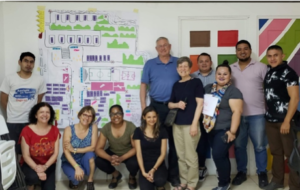
Youth Workers and police partnering to reduce violence in their community. They engaged community members to create this map of safe spots and crime zones in their neighborhood.
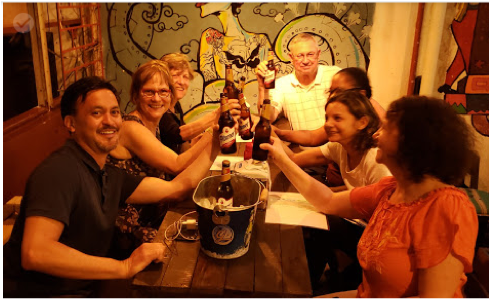
Solidarity included sharing beers with our Honduran colleague at a San Salvador art bar.
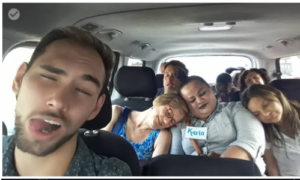
Sharing exhaustion, traveling back from a site visit.
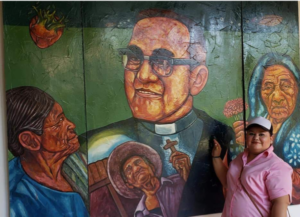
My Global School Colleague Karla Reyes (Salvadoran Community Organizer and Musician). Shown here with one of the hundreds of portraits we saw of The Archbishop Oscar Romero, the Martin Luther King of El Salvador.

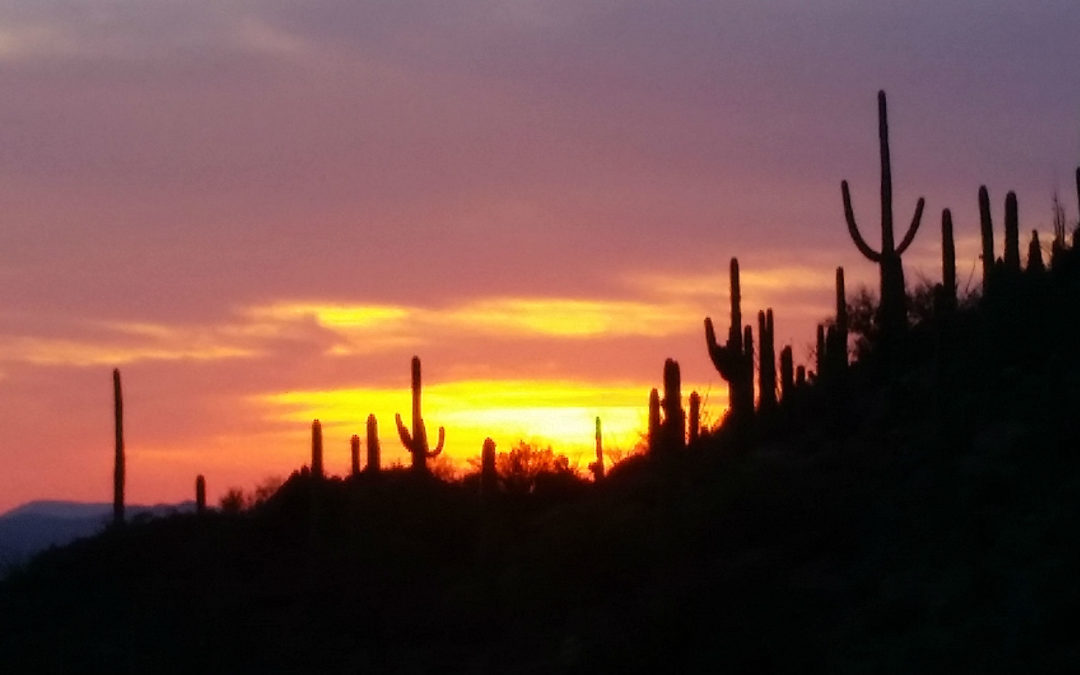
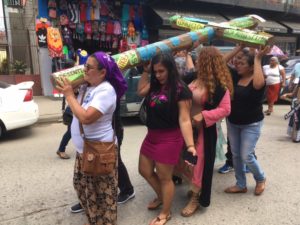 The Via Crucis we followed last month in San Pedro Sula, Honduras, was different. It demonstrated vividly the power and peril faced by those whose deepest faith compels them to stand up against oppression. The cross they carried was covered with words — poverty, violence, hatred, murders, torture, imprisonment – naming explicitly the weight the people carry, under the repressive presidency of Juan Orlando Hernandez. Those in the procession also carried 34 smaller crosses, each one bearing the name of a person who had been shot and killed by security forces in the past two months, since the fraudulent election that ensures Hernandez will continue in power.
The Via Crucis we followed last month in San Pedro Sula, Honduras, was different. It demonstrated vividly the power and peril faced by those whose deepest faith compels them to stand up against oppression. The cross they carried was covered with words — poverty, violence, hatred, murders, torture, imprisonment – naming explicitly the weight the people carry, under the repressive presidency of Juan Orlando Hernandez. Those in the procession also carried 34 smaller crosses, each one bearing the name of a person who had been shot and killed by security forces in the past two months, since the fraudulent election that ensures Hernandez will continue in power.